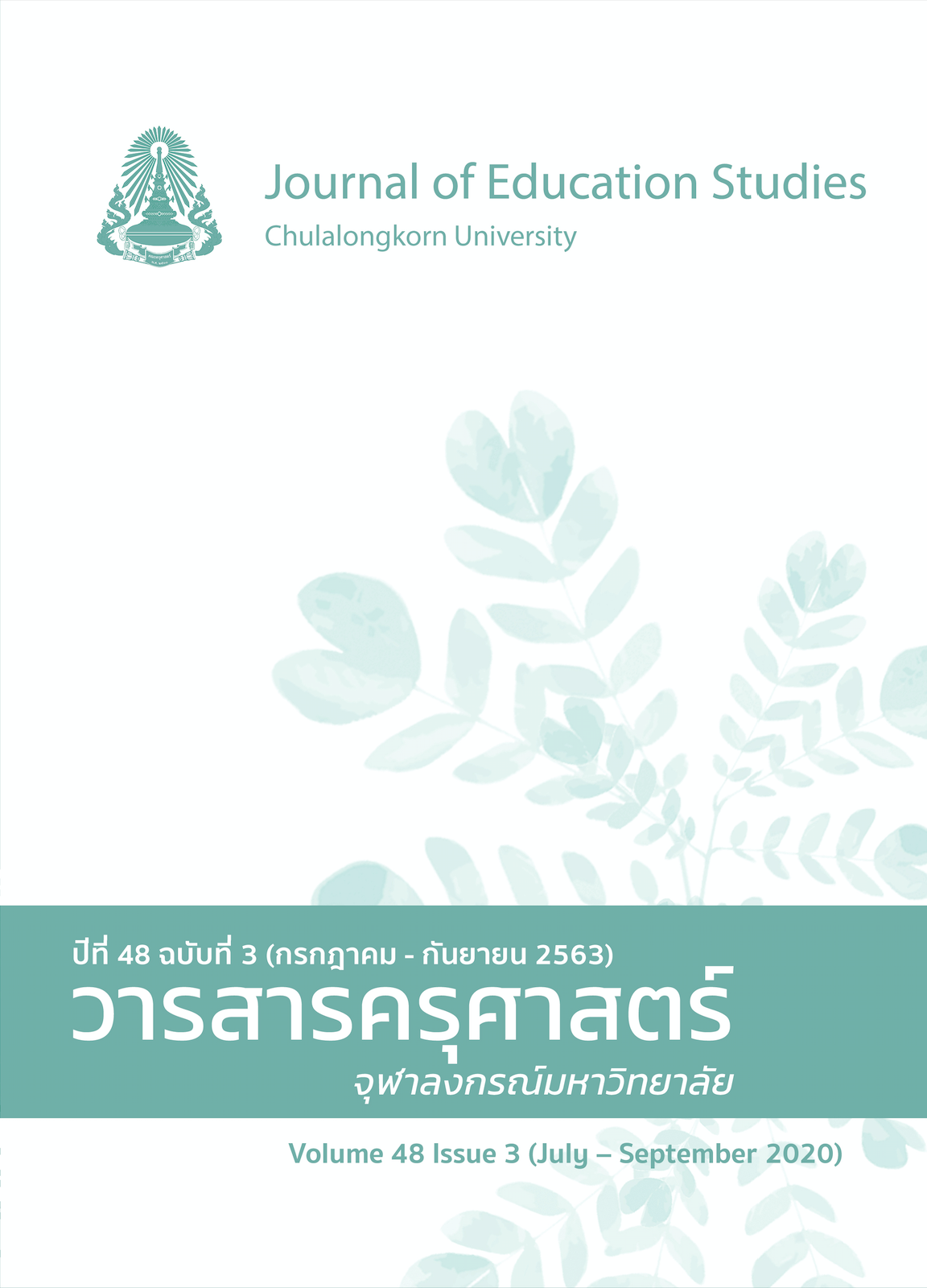A Digital Backchannel Enhanced Instructional System Targeting Agentic Engagement In Lecture-based Learning Environments
DOI:
https://doi.org/10.14456/educu.2020.34Keywords:
agentic engagement, digital backchannel, lecture-based learning, instructional systemAbstract
This research study was designed to examine the influence of a digital backchannel on student agency in a lecture-based learning environment and to develop an instructional system designed to assist instructors in increasing student engagement. The objectives of the study were to determine (1) the ways in which undergraduate students use a digital backchannel, (2) if using a digital backchannel affects agentic engagement, (3) which features of the digital backchannel affect agentic engagement, and (4) if a lecture system that utilizes a digital backchannel promotes agentic engagement. The study employed a mixed methodology design using a questionnaire to collect quantitative student profile data and phenomenography to conduct a qualitative inquiry into participants’ experience. The population for this study consisted of undergraduates at a private, International university located outside of Bangkok, Thailand. A total of 171 participants took part in this study, with ten students selected for a focus group through a non-probability, purposive sampling. Overall, the study found that (1) students readily use a digital backchannel to answer questions posed by the instructor, (2) through a digital backchannel, students have the opportunity to agentically engage in course content, (3) the digital backchannel feature of microblogging enhanced agentic engagement, and (4) the strategic use of a digital backchannel as part of a lecturing system can encourage student agentic engagement. Future research in this area could examine how a digital backchannel can increase agentic engagement in younger students.
References
Buasuwan, P. (2018). Rethinking Thai higher education for Thailand 4.0. Asian Education and Development Studies.
Bunyawanich, S., Järvelä, M. L., & Ghaffar, A. (2018). The influence of uniform in establishing unity, hierarchy, and conformity at Thai universities. Journal of Education and Training Studies, 6(7), 28-37.
Brooks, C., Huang, Y., Hattie, J., Carroll, A., & Burton, R. (2019). What is my next step? School students’ perceptions of feedback. In Frontiers in Education (Vol. 4, p. 96). Frontiers.
Hromic, H., & Hayes, C. (2018, August). Characterising and evaluating online communities from live microblogging user interactions. In 2018 IEEE/ACM International Conference on Advances in Social Networks Analysis and Mining (ASONAM) (pp. 21-24). IEEE.
Jang, H., Kim, E. J., & Reeve, J. (2016). Why students become more engaged or more disengaged during the semester: A self-determination theory dual-process model. Learning and Instruction, 43, 27-38.
Louvigné, S., Uto, M., Kato, Y., & Ishii, T. (2018). Social constructivist approach of motivation: social media messages recommendation system. Behaviormetrika, 45(1), 133-155.
Preus, B., Payne, R., Wick, C., & Glomski, E. (2016). Listening to the voices of civically engaged high school students. The High School Journal, 100(1), 66-84.
Raso, D., Aiemphaya, K., Noymanee, N., & Anukulwech, A. (2018). Computer Multimedia Assisted Presentation Program Teaching Courseware. SAR Journal, 1(3), 71-76.
Reeve, J., & Shin, S. H. (2020). How teachers can support students’ agentic engagement. Theory into Practice, 59(2), 150-161.
Schunk, D. H., & Usher, E. L. (2019). Social cognitive theory and motivation. The Oxford handbook of human motivation, 11.
Siemens, G. (2017). Connectivism. Foundations of Learning and Instructional Design Technology.
Sohn, B. K., Thomas, S. P., Greenberg, K. H., & Pollio, H. R. (2017). Hearing the voices of students and teachers: A phenomenological approach to educational research. Qualitative Research in Education, 6(2), 121-148.
Tapinta, P. (2016). Thai teachers’ beliefs in developing learner autonomy: L2 education in Thai universities. Language learner autonomy: Teachers’ beliefs and practices in Asian contexts, 96-113.
Wallwisher Inc. (2017). Padlet (Version 114.0) [Mobile app]. https://padlet.com/
Downloads
Published
How to Cite
Issue
Section
License

This work is licensed under a Creative Commons Attribution-NonCommercial-NoDerivatives 4.0 International License.




